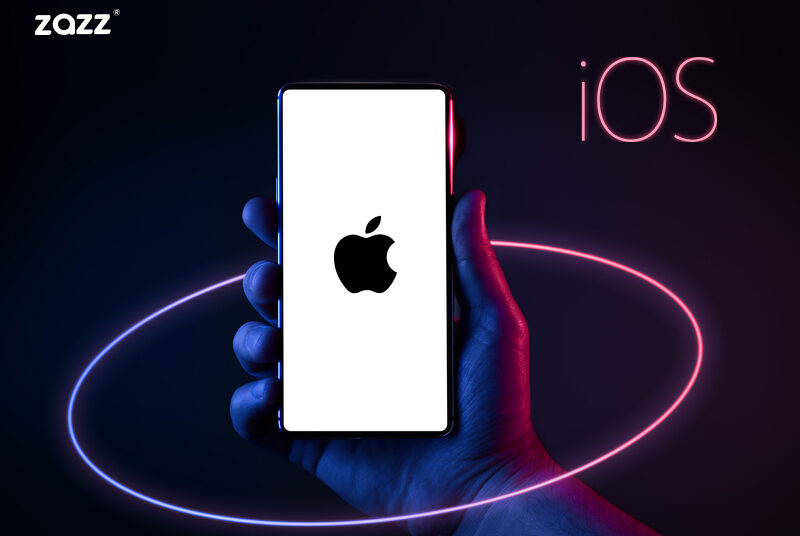5 Efficient Frameworks for iOS App Development
Mobile app technologies have come a long way since the introduction of the first iPhone in 2007. At present, there are a plethora of frameworks available for iOS developers to choose from when building their applications.
These frameworks offer a wide range of features and capabilities, making it easier for developers to create high-performance, visually stunning, and user-friendly apps. In this article, we’ll take a look at the top 5 most efficient frameworks for iOS app development.
Top 5 Efficient Frameworks for iOS App Development
SwiftUI
SwiftUI is a new framework for iOS app development services that was introduced by Apple in 2019. It is a declarative framework that allows developers to create user interfaces using simple and easy-to-read code. SwiftUI is built on top of Swift, which means that developers can use the same language for both the front-end and back-end of their app.
This makes it an excellent choice for developers who are already familiar with Swift. Additionally, SwiftUI is designed to work seamlessly with other frameworks and tools, such as Xcode and Interface Builder, making it easy to create complex and dynamic user interfaces.
React Native
Among other choices, React Native is another popular framework that allows developers to build mobile apps using JavaScript. It is based on React, a JavaScript library for building user interfaces, and is maintained by Facebook. React Native allows developers to create apps that run on both iOS and Android platforms, which can save a lot of time and resources.
It also allows developers to use the same codebase for web and mobile development, making it an excellent choice for creating cross-platform apps. Furthermore, React Native has a large and active community, which means that developers can quickly find answers to any questions they might have and can also take advantage of a wide variety of pre-built components and libraries.
Ionic
Ionic is an open-source framework for building mobile apps that allow developers to use web technologies such as HTML, CSS, and JavaScript. It is based on Angular, a JavaScript framework, and is maintained by Ionic Framework. Ionic is similar to React Native in that it allows developers to create apps that run on both iOS and Android platforms.
However, it is more focused on building hybrid apps, which are essentially web apps that are wrapped in a native shell. This allows developers to create apps that are faster and more responsive than traditional web apps while still benefiting from web technologies.
Xamarin
Xamarin is one of the popular web development services for building mobile apps that allow developers to use C# and .NET to create apps that run on both iOS and Android platforms. It is maintained by Microsoft and is based on the Mono runtime. Xamarin allows developers to share code across multiple platforms, which can save a lot of time and resources.
Additionally, it allows developers to use the same development tools and libraries that they are already familiar with, such as Visual Studio and . NET. Furthermore, Xamarin has a large and active community, which means that developers can quickly find answers to any questions they might have and can also take advantage of a wide variety of pre-built components and libraries.
Flutter
Flutter, as an open-source framework, offers the scope for cross-platform compatibility. Since Google builds it, developers use it to make applications for Android, iOS, and Linux. This framework can also power apps for Mac and Windows.
One of the main benefits of using Flutter for iOS app development is its ability to create high-performance apps with a responsive and smooth user interface. This is achieved through the use of the Skia graphics engine, which allows for fast rendering of the UI.
Flutter also offers a wide range of customizable widgets, which can be used to create unique and visually appealing designs. These widgets are built on top of the framework and can be easily styled and customized to fit the specific needs of the app.
Flutter also provides a robust set of tools for debugging and testing, which can help ensure that the app is stable and free of bugs. Additionally, the framework has a large and active community of developers who are constantly working on new features and improvements.
In addition to the top 5 frameworks mentioned, there are several other efficient and powerful frameworks that iOS developers can leverage to create high-quality applications. Here are five more noteworthy frameworks for iOS app development:
Additional Efficient Frameworks for iOS App Development
1. UIKit
UIKit is one of the core frameworks provided by Apple for developing iOS applications. It has been the foundation of iOS app development since the introduction of the iPhone and continues to be a crucial tool for developers. UIKit offers a comprehensive set of classes and APIs for building and managing the user interface, handling user interactions, and managing app navigation. It provides developers with a wide range of UI components, such as buttons, labels, and table views, which can be easily customized to create unique and responsive user interfaces.
2. Combine
Combine is a reactive programming framework introduced by Apple. It allows developers to process asynchronous events by combining event-processing operators. This framework is beneficial for handling asynchronous tasks, such as network requests, in a more declarative and functional manner. Combine works seamlessly with Swift, making it easier for developers to write cleaner and more maintainable code. It is highly efficient for managing data streams and integrating with other iOS frameworks like SwiftUI and UIKit.
3. Core Data
Core Data is a robust framework for managing the model layer objects in iOS applications. It provides a structured way to persist data in an app, enabling developers to store and retrieve data efficiently. Core Data offers advanced features such as data migration, undo and redo support, and automatic change tracking, which simplifies the development of complex data-driven applications. By abstracting the underlying storage mechanisms, Core Data allows developers to focus on the app’s business logic rather than the intricacies of data management.
4. Alamofire
Alamofire is a popular open-source library for handling HTTP networking in Swift. It simplifies the process of making network requests and handling responses, offering a clean and concise syntax. Alamofire provides robust features for making asynchronous network calls, including JSON serialization, response validation, and authentication handling. It is beneficial for integrating APIs into iOS applications, ensuring efficient and reliable communication between the app and remote servers.
5. RxSwift
RxSwift is a reactive programming library for Swift based on the ReactiveX (Reactive Extensions) library. It enables developers to write asynchronous and event-based code using observable sequences and operators. RxSwift is highly effective for managing complex event-driven scenarios, such as user input, network responses, and data updates. By using RxSwift, developers can create more responsive and interactive applications with cleaner and more maintainable code. It integrates well with other iOS frameworks, such as UIKit and Combine, providing a versatile toolkit for app development.
Conclusion
Efficient frameworks for iOS app development are essential tools for building high-quality & user-friendly applications. These frameworks provide developers with the necessary tools and resources to create robust and scalable apps that can meet the demands of today’s users.
From powerful animation and UI libraries to robust debugging and testing tools, these frameworks offer a wide range of features that can help developers streamline the app development process and deliver exceptional user experiences. At Zazz, we use all these powerful frameworks to design the project of your dreams!

















